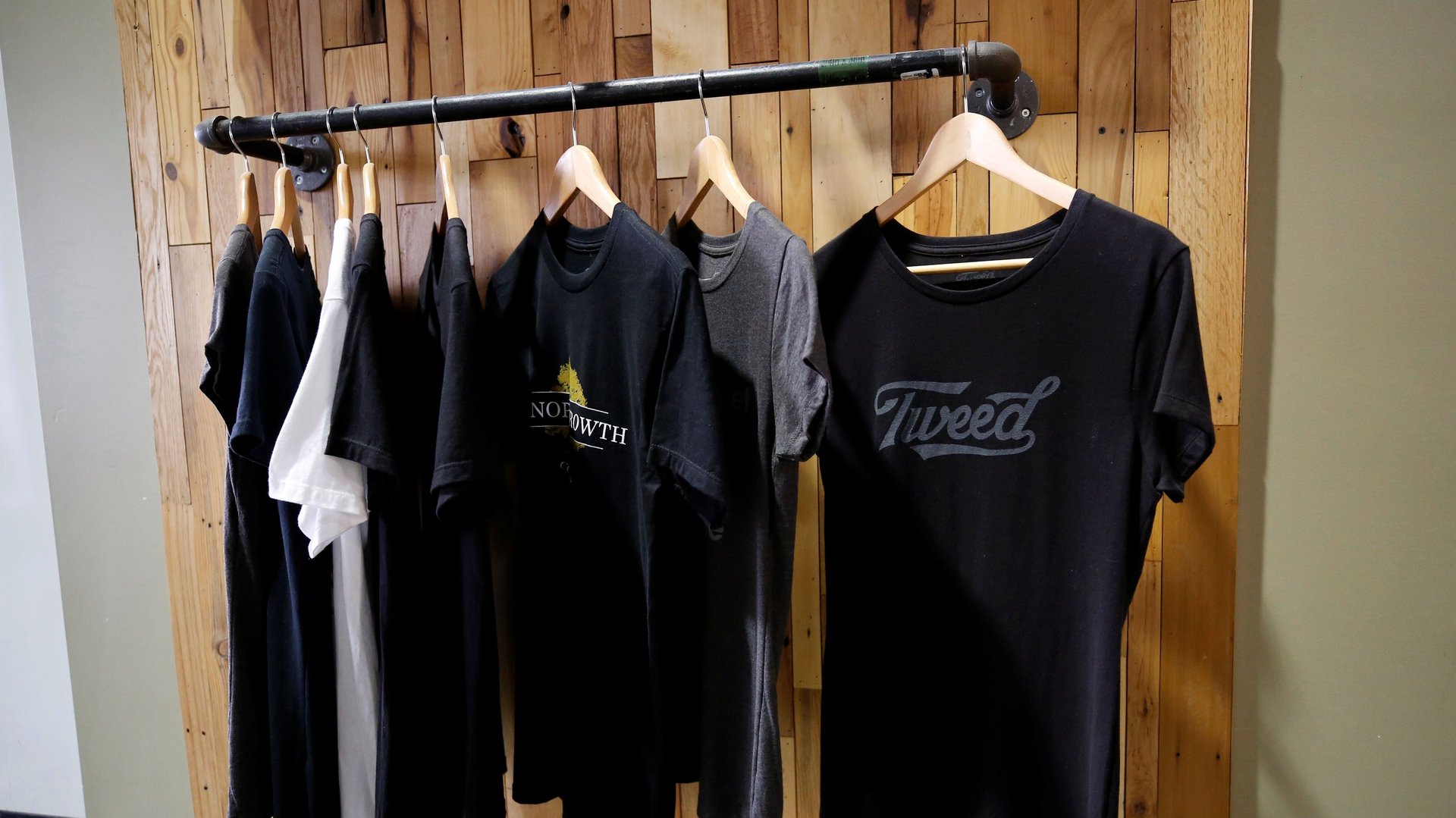Weed is now legal in Canada but promoting it isn’t. Companies are creative about doing it anyway
Canada officially legalized cannabis today (Oct. 17), and it’s being covered all across the media. It’s logical that such buzz would encourage cannabis companies to ramp up advertising at this time—except they technically can’t, because it’s technically not allowed.


Canada officially legalized cannabis today (Oct. 17), and it’s being covered all across the media. It’s logical that such buzz would encourage cannabis companies to ramp up advertising at this time—except they technically can’t, because it’s technically not allowed.
According to Health Canada’s regulations, “Unless authorized under the Cannabis Act, it is prohibited to promote cannabis or a cannabis accessory or any service related to cannabis.” These prohibitions include advertising weed through testimonials, endorsements, or portraying marijuana as if it’s linked to “a way of life such as one that includes glamour, recreation, excitement, vitality, risk or daring.”
In addition to banning companies from linking getting high with the high life, there are also rules when it comes to packaging, including mandatory labels and restrictions on colors. As Bloomberg put it (paywall) at the beginning of this year, the “strict branding rules will take the fun out of legal weed.”
But the limitations don’t seem to be quelling demand or buzz, and there are clear reasons why: Canada’s position as the first G7 nation to legalize recreational weed is a landmark moment. Canadians already smoke a lot of pot (2.4 million claim to be daily users). Cannabis tourism will likely keep interest high. As the New York Times points out (paywall), some newspapers now even have dedicated cannabis sections and reporters.
However, marijuana vendors’ creative tactics are another key reason why there is a healthy market for legal weed when companies aren’t able to market it. These tactics largely rely on loopholes of sorts in Health Canada’s regulations. For instance, “brand-preference promotion” is allowed, meaning that companies distinguish themselves not by their cannabis products but their brand identity. Marijuana can also be used in artistic productions and performances, but only if “no consideration is given, directly or indirectly, to that use.” Such actions will still usually lead consumers to cannabis anyway.
Take competing billboards by Aurora Cannabis and Tweed, for example. Tweed is a subsidiary of Canopy Growth, which along with Aurora is one of the most valuable marijuana companies in the world. Tweed billboards usually just say “Hi,” the company’s marketing slogan, but will direct viewers to the company’s website or social media, from which there is an easy trail to the marijuana. Aurora’s billboards state, “How will cannabis legalization change your life? There’s more to the conversation,” and similarly, viewers are directed to one of the brand’s websites. Some have interpreted these billboards as a violation of promotion law.
Health Canada has issued warnings to five cannabis companies regarding promotional activities since July, the Ottowa Citizen reports. Tweed told the Citizen that it had cancelled some of its promotional activities based on advice from Health Canada, but Aurora did not confirm if it was one of the five firms warned.
And even if cannabis companies aren’t explicitly promoting their products elsewhere, social media and brand websites seem like a grey area. Users are typically asked to confirm they are of legal age when they visit marijuana websites, but on social media, anyone can see the content that can link a brand to the sale of cannabis—even without spelling it out.
Instagram is another way that marijuana distributors can link their companies to a certain lifestyle, even without specifically advertising weed itself. Tokyo Smoke, a luxury Canadian cannabis brand, is one example. The Guardian wrote that “Tokyo Smoke promotes cannabis by combining ambiguity and aesthetic.” There’s no hard line on whether attributes of “glamour, recreation, excitement, vitality, risk or daring,” can be drawn from cool Instagram photos, even more so when there’s no direct association with cannabis (although the implied, or indirect associations, remain).
Sponsorships and partnerships, even without the express purpose of promoting marijuana, is also good PR by association. For instance, Aurora sponsored the Toronto International Film Festival 2018, where its pop-up space “House of Aurora” garnered plenty of attention. Companies have also brought on celebrity investors to focus on the stock, rather that the cannabis product or brand, to skirt regulations. Gene Simmons was appointed the “chief evangelist officer” and investor of Vancouver-based producer Invictus MD, for instance. And by partnering with Snoop Dogg to create a line of marijuana products—Snoop isn’t an endorser—Canopy Growth’s stocks still soared.
Canada’s time as a country that fully legalized marijuana has just begun, and whether these creative marketing tactics that sidestep promotional prohibitions last remains to be seen. There is a price to pay if they don’t: Licensed producers can be fined up to C$5 million ($3.8 million) and imprisoned up to two years. But industries like tobacco and Viagra have thrived before, even with similarly strict promotional regulations.
And so early on in Canada’s perceived role as a cannabis country, companies might want to strike while the iron is hot. “I think companies are going to take a lot of risks, and ask for forgiveness later,” David Sutton, president of biotechnology company Nanosphere, told the Ottowa Citizen.
“You have to look at the opportunity cost. If you toe the line, you may be 100% compliant (with the law) but you may be 0% profitable,” he said.